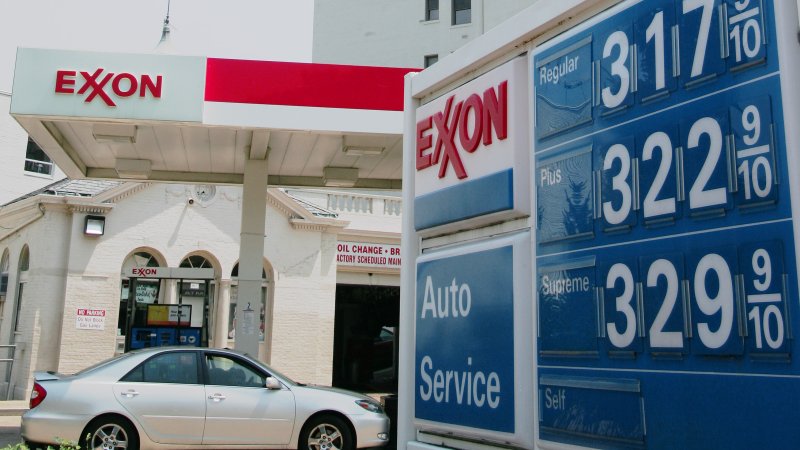An Exxon gas station on Capitol Hill in Washington. (UPI Photo/Eduardo Sverdlin) |
License Photo
CANBERRA, Australia, June 6 (UPI) -- Exxon Mobil has signed an agreement for coal seam gas exploration in Victoria, Australia.
Under an agreement with Ignite Energy Resources, Exxon will take an initial 10 percent interest in Ignite's wholly owned exploration license, known as EL 4416, in the Gippsland Basin.
Ignite's EL 4416 permit contains an estimated 16.4 billion tons of lignite coal, The Wall Street Journal reports.
Ignite said a review by a specialist company suggests that gas in place in coal seams that aren't able to be mined could be in the range of 6 trillion to 35 trillion cubic feet.
While financial terms weren't disclosed, the agreement marks Exxon's first investment in the Australian coal seam gas sector.
The companies said they will work together over the next 12 to 18 months to evaluate and assess the natural gas potential in the deeper coal seams of the license and determine whether it could be commercially produced.
Ignite will serve as operator during the preliminary assessment phase.
Ignite says that the controversial technique of hydraulic fracturing, or fracking, may not be necessary to produce gas from EL 4416's coal seams.
"Whilst the Gippsland Basin may be smaller than most Australian basins with potential for tight or shale gas, it's access to existing infrastructure like pipelines and gas processing facilities is a big plus," Craig McMahon, a Perth energy analyst at consultancy Wood Mackenzie was quoted as saying by The Wall Street Journal.
"Its close proximity to a growing Victoria gas market should also promote development of its resource quicker than many other basins across the country."
A new report commissioned by the Australian Petroleum Production and Exploration Association states that gas from coal deposits could increase the Australian economy's gross domestic product by more than $500 billion and raise $243 billion in federal taxes.
Separately, Exxon Mobil Chief Executive Officer Rex Tillerson speaking this week at the World Gas Conference in Kuala Lumpur, Malaysia, said that by 2025, natural gas is expected to overtake coal as the second most significant contributor behind oil in meeting global energy needs."
"Expanded economic output and 2 billion new consumers by 2040 will mean global energy demand will likely grow by more than 30 percent," Tillerson was quoted as saying by The Australian newspaper.
"For the Asia-Pacific region, the need for energy will be even greater because populations will grow and economies will expand at a much faster rate than many parts of the world. In our view, Asia's economy will triple in size by 2040 and energy demand is projected to grow more than 50 percent."















